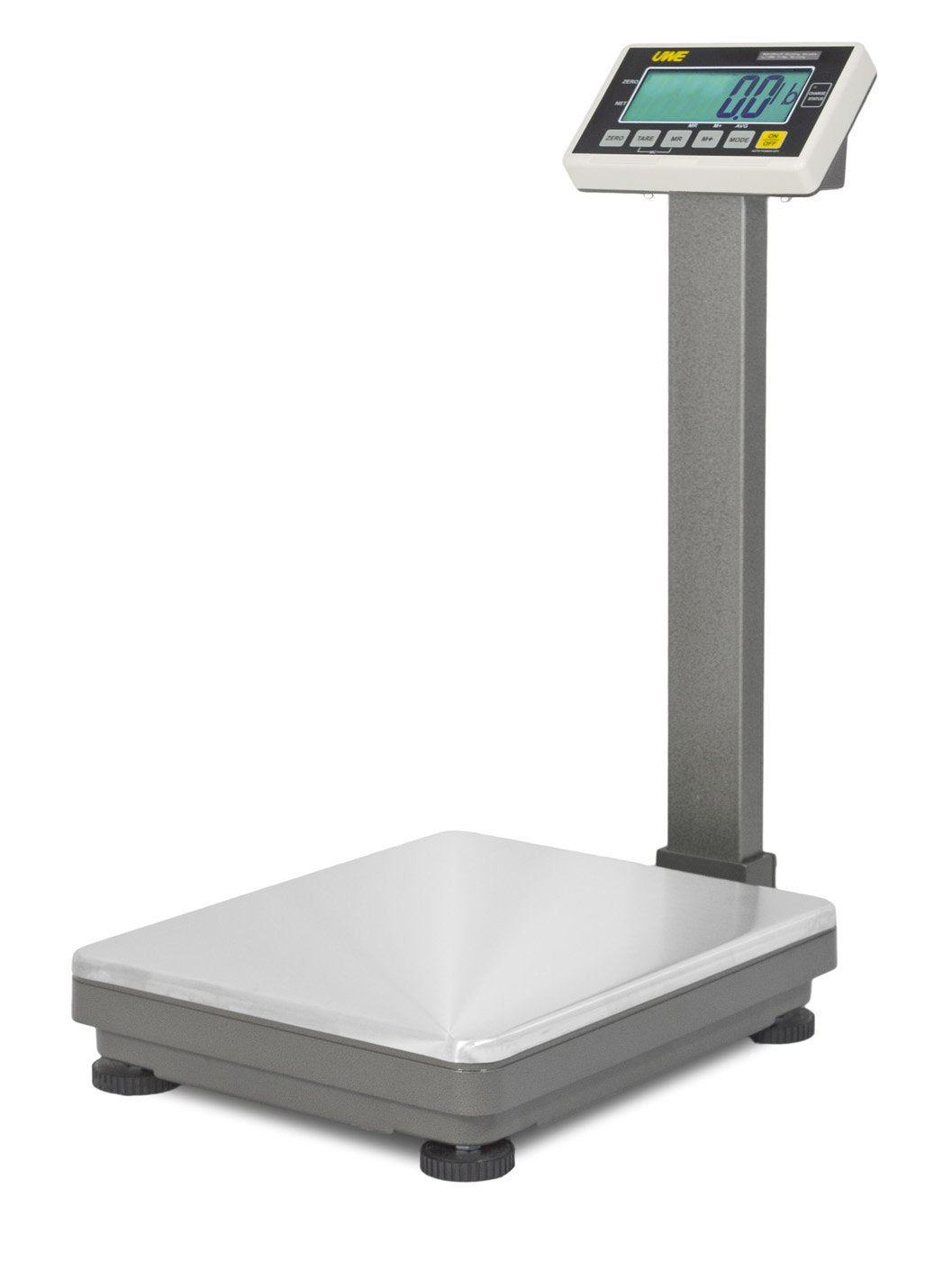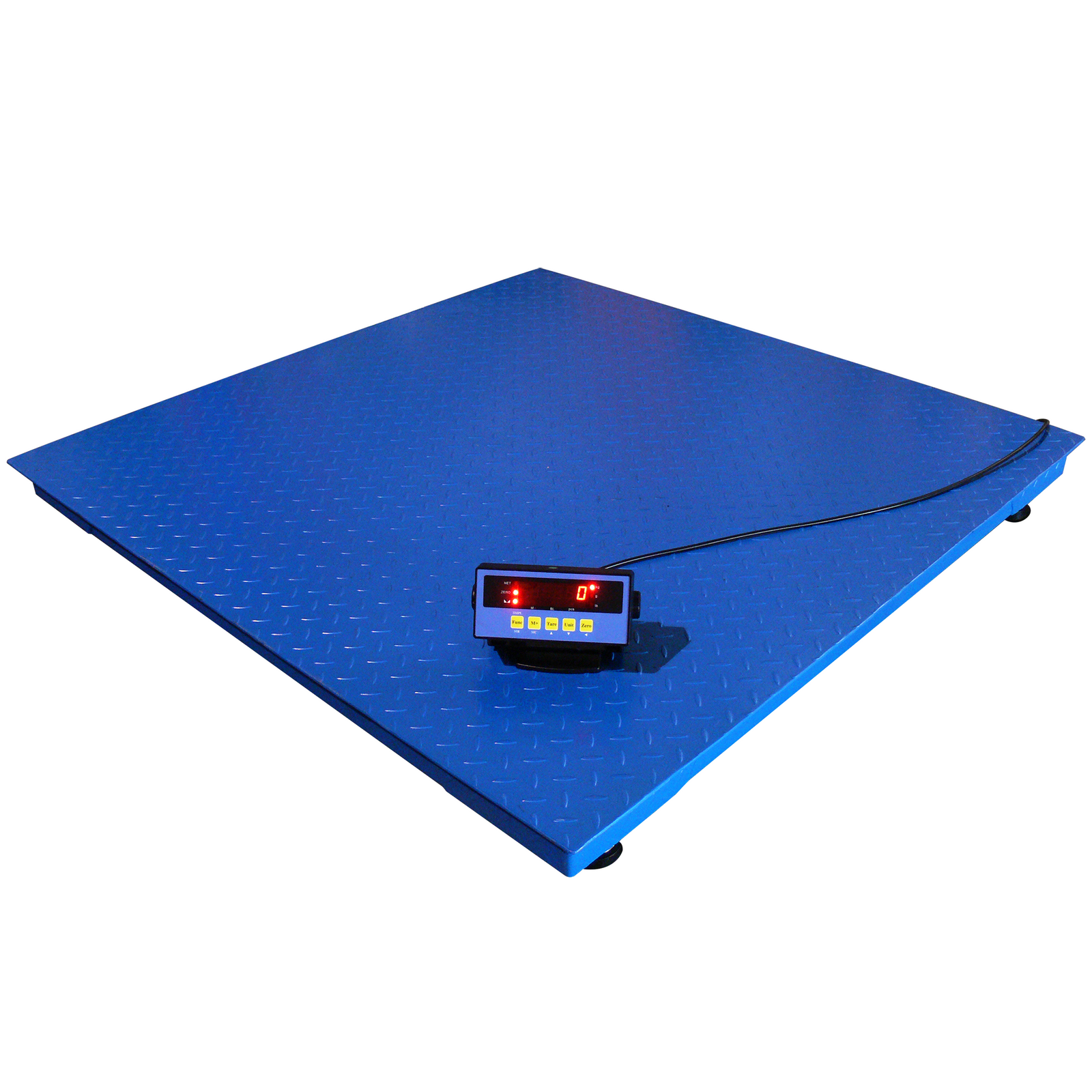How Commercial Scales Improve Accuracy in Production and Logistics
Industrial ranges are important to the precision required in manufacturing and logistics, as they straight influence the precision of weight measurements essential for reliable production and stock practices. Industrial Scales. By making certain that products are evaluated properly, companies can minimize errors that might bring about significant monetary consequences. Furthermore, the advent of sophisticated innovations in considering systems is changing standard processes. However, comprehending the complete extent of these improvements and their implications for future procedures invites a more detailed exam of exactly how evolving methods can redefine accuracy requirements in the market.
Significance of Precision in Operations
In the world of production and logistics, precision is the keystone of functional performance. Precise dimensions are essential for preserving quality assurance, maximizing source allowance, and guaranteeing conformity with industry criteria. When procedures count on specific data, businesses can minimize waste, enhance manufacturing timelines, and improve general performance.
The relevance of precision extends past easy dimension; it also affects decision-making procedures. As an example, specific weight readings can establish proper supply levels, enhance supply chain logistics, and promote accurate invoicing. Additionally, inaccuracies in measurements can cause pricey mistakes, such as overflow or ignoring product requirements, which can endanger job timelines and success.
Moreover, accuracy in operations fosters a society of accountability and quality control. By implementing strenuous measurement criteria, companies can identify ineffectiveness and pass enhancements, ultimately resulting in enhanced client satisfaction. In a period where competition is fierce, the ability to provide product or services with precision can be a distinct variable that sets a business apart. Hence, buying precision dimension devices, such as commercial scales, is not merely a technical factor to consider but a tactical essential for success in the production and logistics fields.
Types of Industrial Scales
Numerous kinds of commercial scales play an important role in attaining the precision necessary for efficient production and logistics procedures. Each kind is developed to satisfy certain needs, ensuring accurate measurement of products, elements, and items.
One common kind is the platform range, which offers a flat surface for evaluating bulk materials or big products. These ranges are frequently made use of in storage facilities and shipping centers. One more kind is the bench range, typically smaller and used for considering private packages or smaller sized sets of products. These ranges are important in high quality control processes. Industrial Scales.
For applications where accuracy is essential, logical equilibriums are used. These high-accuracy scales are made use of in research laboratories and research study settings to measure little amounts with utmost accuracy. Flooring ranges, created for durable considering, are excellent for weighing large pallets or containers, often integrated with forklifts for effectiveness.
Additionally, lots cells are used in various applications for real-time weight dimension and data collection. Each of these ranges adds distinctively to the functional performance, ensuring that businesses can preserve precision throughout their production and logistics processes. Comprehending the kinds of industrial ranges is necessary for maximizing efficiency and attaining operational excellence.

Influence on Inventory Administration
Exact weighing is essential for reliable supply monitoring, as it directly affects supply accuracy and functional efficiency. In production and logistics, precise measurement of products and products makes sure that stock records reflect actual supply levels, decreasing inconsistencies that can bring about overstocking or stockouts. Industrial scales give the needed accuracy to weigh things precisely, enabling companies to maintain a reliable inventory system.
Additionally, exact evaluating adds to better projecting and planning. With precise information on inventory levels, Home Page companies can make educated choices regarding procurement and manufacturing schedules. This reduces the risk of excess stock, which can link up capital and increase storage expenses, in addition to prevent shortages that may disrupt operations.
Additionally, the combination of industrial scales with supply administration systems facilitates real-time monitoring of supply movements. This improves the process of upgrading inventory documents, enhancing openness and accountability throughout the supply chain. Ultimately, precise evaluating not just supports reliable inventory management yet likewise drives total operational efficiency, making it possible for companies to respond promptly to market demands and keep an one-upmanship in their respective markets.
Enhancing Quality Assurance
Reliable stock monitoring not just makes sure optimum supply degrees but likewise lays the groundwork for durable quality control procedures. Industrial ranges play a pivotal duty in enhancing quality assurance by supplying precise weight measurements that are important for keeping product stability. Consistent weight confirmation enables producers to follow specs, guaranteeing that each thing fulfills the necessary high quality criteria.
In high-stakes atmospheres, such as food production or pharmaceuticals, even small weight disparities can lead to substantial conformity concerns. By integrating industrial ranges into the production line, business can check item weights in genuine time, enabling for instant restorative activities if problems are identified. This positive technique reduces waste and improves general item reliability.
Additionally, exact evaluating assists in better formula of basic materials, which is critical in industries like cosmetics and chemicals. By guaranteeing that active ingredient proportions remain regular, producers can attain remarkable item high quality, boosting client contentment and decreasing returns.
Future Fads in Evaluating Innovation
The future of evaluating modern technology is poised for substantial innovations driven by automation, connectivity, and data analytics. As industries advance, the assimilation of sophisticated sensing units and IoT (Web of Things) capacities will certainly allow real-time monitoring and reporting of weight information. This connection will certainly not only boost operational performance but also promote anticipating upkeep, lowering downtime and enhancing efficiency.
In addition, the incorporation of expert system and device knowing formulas right into news evaluating systems will boost data analysis capabilities. These modern technologies can identify anomalies and patterns, enabling even more informed decision-making and optimized supply chain monitoring. Additionally, the rise of cloud-based remedies will certainly enable seamless information sharing throughout platforms, ensuring that stakeholders have access to up-to-date information at all times.
Sustainability will certainly likewise play a vital function in future considering modern technology. As businesses make every effort to lessen their carbon footprint, evaluating systems that integrate energy-efficient styles and materials will go to this web-site certainly become significantly crucial. Additionally, innovations in electronic weighing ranges will certainly sustain much better resource administration by providing precise dimensions that decrease waste.
Final Thought
To conclude, industrial scales considerably boost accuracy in manufacturing and logistics by providing accurate weight dimensions vital for efficient operations. Their role in stock monitoring, quality assurance, and integration with innovative technologies highlights their significance in decreasing discrepancies and optimizing resource allotment. As sectors proceed to develop, the fostering of cutting-edge weighing options will certainly better sustain operational efficiency and reduce waste, inevitably adding to enhanced productivity and competitiveness in the market.
One common type is the system range, which supplies a level surface area for weighing huge items or bulk products. Another kind is the bench scale, commonly smaller and made use of for evaluating specific bundles or smaller sized batches of items. Floor ranges, designed for sturdy evaluating, are ideal for considering large pallets or containers, usually integrated with forklifts for performance.
Industrial ranges provide the needed accuracy to weigh products properly, enabling services to maintain a reliable stock system.

Comments on “Enhance Your Operations with Accuracy Industrial Scales Today”